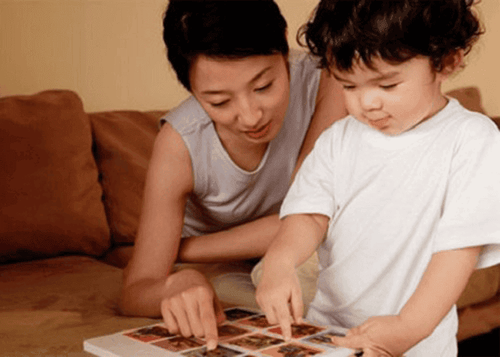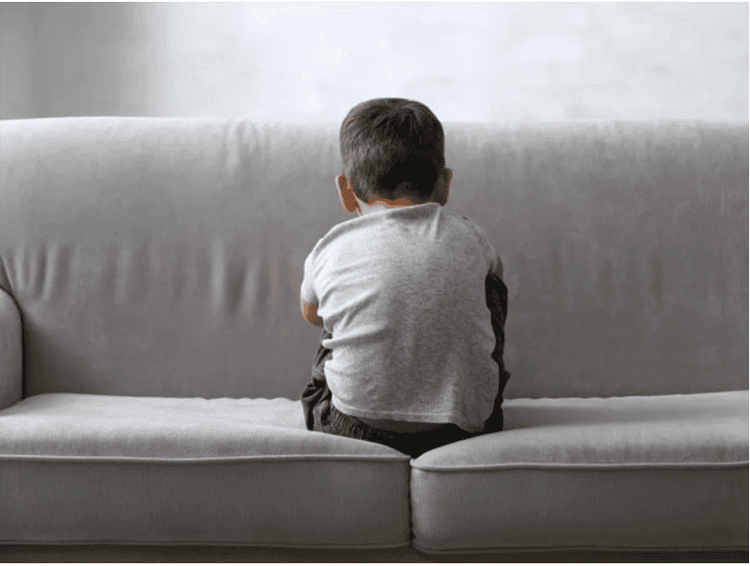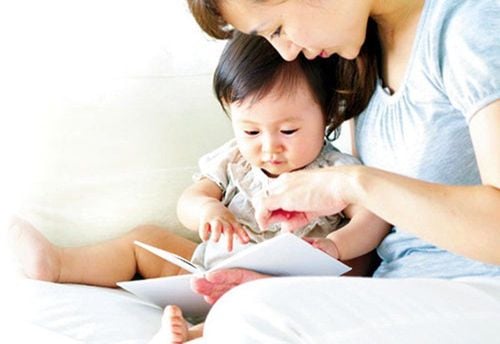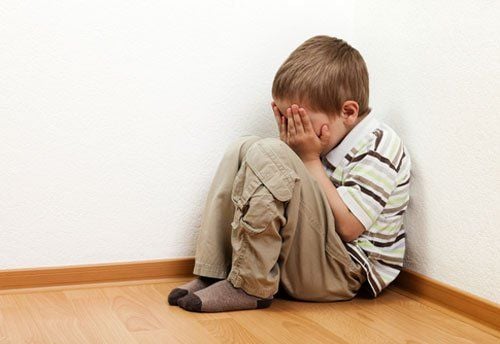This is an automatically translated article.
The article is professionally consulted by Master, Doctor Phan Ngoc Hai - Pediatrician - Neonatologist - Department of Pediatrics - Neonatal - Vinmec Danang International General Hospital.Once children realize that each object has a name, they all want to name it in their own words. Children aged 16 to 18 months are entering the stage of language development. Different children learn to speak at different times. Therefore, a 16-month-old child who cannot speak or a 17-month-old child cannot speak, parents do not need to worry too much.
1. The first words
When you ask your child to take his favorite toy, he will happily do so. When children hear about going to the park, they will come and stand at the door and get ready. In contrast, when parents remind them that it's bedtime, children often hide or cry out in protest.
Thus, by about 16 months of age, babies can hear and understand most of what others say, even when they can only stammer words. The ability to understand speech is an essential first step required for learning to speak, first of all learning to stutter. Many studies have proven that this skill develops from the time the baby can hear the first sound from the mother's womb. After birth, children will spend time practicing their ability to repeat words, build vocabulary and related grammatical structures. This process usually occurs when the child is 2 years old.
Language skills often take a long time to practice. The distance from communicating in simple phrases to expressing your opinions and feelings into words is a long way. As with other developmental milestones, normal speech cannot be determined by a number, but varies from child to child. Some babies can only say a few words, while others can say many words by the age of 16 months.
Trắc nghiệm: Sự phát triển tinh thần, vận động của bé thế nào là đúng chuẩn?
Khi nào bé biết nói, biết hóng chuyện hay biết cầm cốc là "đúng chuẩn"? Điểm xem bạn biết được bao nhiêu mốc phát triển tinh thần, vận động "đúng chuẩn" của bé nhé!The following content is prepared under supervision of Thạc sĩ, Bác sĩ y khoa, Ma Văn Thấm , Nhi , Phòng khám Đa khoa Quốc tế Vinmec Dương Đông(Phú Quốc)
The first words that children learn are often the names of things around them such as people, animals, toys. Young children learn single words and short phrases, averaging 1 to 2 new words per month. After that, children will enter the "language explosion" phase where they learn new words at a rapid rate, about 10 words a day. This stage usually occurs when the child is 18 months old. Accordingly, when children have mastered some words, they will try to communicate and express their opinions more often and accurately.
See more: How is a child considered slow to speak?

2. Develop vocabulary
Young children will figure out how to connect simple words into short sentences. However, children are often interested in words that are not really important such as prepositions or articles and they will learn these groups of words at a later stage.The first sentences spoken by children usually consist of only about 2 words and are brief in nature, with content related to a certain subject. Although simple, these sayings are also evidence of a new step in the language development of babies between 16 and 18 months old.
With their self-centered instincts, the first sentences a child says will often be imperatives. At first, some words will be used incorrectly. For example, children might name a lion dog or a zebra because they both have four legs and a tail. Over time, children will learn more and use more correct words.
Many studies have shown that parents who communicate with their children from an early age, use a variety of words and give positive feedback when the child tries to speak, will create the ability to develop language. best language. All parents of young children have concerns about their child's language development. However, even though children appear to be slower to speak than others, as long as they listen to the conversations around them, they seem to understand what is heard and communicate through facial expressions and language. body language, which are cues for preparing for real future communication.

3. The magic of faith
Somewhere between the ages of 16 and 18 months, babies will transition from imitation to practice. This means that children have the cognitive and imaginative ability to attach the image of one object to another. Children can learn to follow the sounds of animals as they crawl around the table legs or play with dolls as a way to imitate the actions of others.At this age, between 16 and 18 months, parents should be mindful of what is happening or being said at home. Because, young children can understand everyday conversations, know about a few words and are always ready to repeat or imitate what they see or hear.
Memorizing language is one of the last milestones related to memory. Children will tend to repeat events from their memory as soon as they can speak and speech memory will improve significantly throughout preschool age. Some young children can narrate and describe events from infancy.
See also: Teaching children to speak: Knowledge to know
4. What to do when the 18-month-old can't speak yet?
There are many ways to encourage children to practice speaking. Creating opportunities for communication is an important first step. Parents should talk to their children about routine tasks like washing dishes or changing diapers. Share with your child what you observe and what you think about them. When asking questions, parents should give children time and encourage them to answer on their own.Visual cues also help children understand what parents are talking about. For example, when you want your child to come closer to you, you can wave a hand to help the child recognize that you want the child to move closer.
Whenever language is used, children need to be encouraged and pointed out whether they are right or wrong. It's a good idea to repeat what your child has just said, even if it seems unclear. Parents should expand and develop children's ideas into complete sentences.
Don't worry about how your child pronounces words. It's really important that your child understands what you're trying to say.
If children are taught more than one language, they can sometimes be confused and tend to develop skewed towards a particular language. However, this does not affect the child's speaking skills. Currently, there is a lot of evidence that learning two languages at the same time can improve children's speaking and memory skills later in life.
If children have difficulty understanding simple structures or have trouble concentrating when others are talking and referring to something, parents should see a doctor and other professionals for advice. Doctors will try to find the cause of this condition, such as a hearing exam. Deafness is one of the barriers that make it difficult for children to learn to speak, so it should always be eliminated first.
Occasionally, a delay in speech, coupled with poor eye and gestural communication with one's surroundings, can be a sign of autism in a child. This is also one of the cases where parents need to take their children to a doctor for treatment and early re-integration into the community.

References: parents.com, babycentre.co.uk















